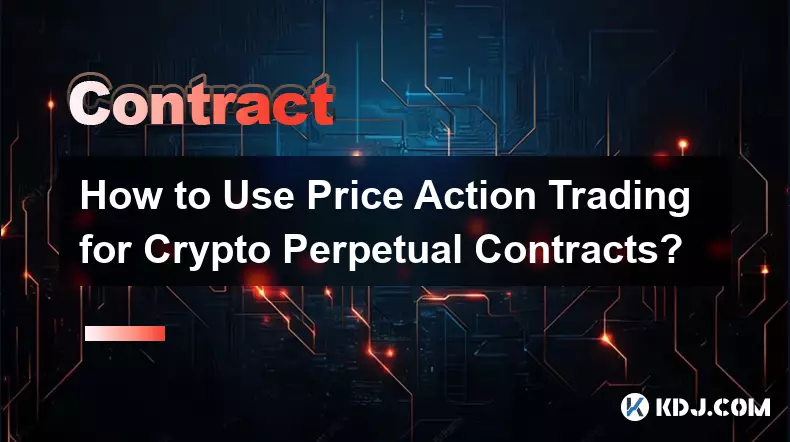-
 bitcoin
bitcoin $87959.907984 USD
1.34% -
 ethereum
ethereum $2920.497338 USD
3.04% -
 tether
tether $0.999775 USD
0.00% -
 xrp
xrp $2.237324 USD
8.12% -
 bnb
bnb $860.243768 USD
0.90% -
 solana
solana $138.089498 USD
5.43% -
 usd-coin
usd-coin $0.999807 USD
0.01% -
 tron
tron $0.272801 USD
-1.53% -
 dogecoin
dogecoin $0.150904 USD
2.96% -
 cardano
cardano $0.421635 USD
1.97% -
 hyperliquid
hyperliquid $32.152445 USD
2.23% -
 bitcoin-cash
bitcoin-cash $533.301069 USD
-1.94% -
 chainlink
chainlink $12.953417 USD
2.68% -
 unus-sed-leo
unus-sed-leo $9.535951 USD
0.73% -
 zcash
zcash $521.483386 USD
-2.87%
DigiFinex Contract Short Selling Tutorial
Short selling on DigiFinex involves borrowing crypto assets, selling them at a higher price, and buying them back later at a lower price, enabling traders to capitalize on downward price movements in the highly volatile cryptocurrency market.
Nov 24, 2024 at 09:28 am

DigiFinex Contract Short Selling Tutorial: A Step-by-Step Guide
Introduction
Short selling, a trading strategy that allows traders to profit from a decline in the price of an asset, is widely used in the unpredictable world of cryptocurrencies. Among the various platforms offering this feature, DigiFinex stands out with its user-friendly interface and competitive rates. This comprehensive tutorial will guide you through the process of short selling contracts on DigiFinex, empowering you to capitalize on downward market movements.
Step 1: Understanding Short Selling
Shorting Crypto ContractsShort selling involves borrowing an asset, selling it at a higher price, and buying it back later at a lower price to return to the lender. In the case of DigiFinex contracts, you're essentially betting against the price of an underlying cryptocurrency, anticipating its decline.
Key Concepts- Margin: Collateral you provide to borrow the asset.
- Order Type: Specify "Short" when placing your order.
- Leverage: Amplifies your potential profits but also your losses.
Step 2: Opening a DigiFinex Account
Create an Account- Visit the DigiFinex website and sign up for an account.
- Verify your email address and complete KYC procedures.
- Navigate to the "Finance" tab and deposit funds into your USDT account.
- USDT is the stablecoin used as margin for DigiFinex contracts.
- Click "Transfer" and allocate the desired amount of USDT to your margin account.
Step 3: Choosing the Right Contract
Contract Selection- Decide on the cryptocurrency pair you want to short.
- Consider market conditions and your risk tolerance.
- Each contract has specific terms: size, leverage, and expiration date.
- Select the contract that aligns with your trading strategy.
Step 4: Placing a Short Order
Order Form- Navigate to the "Contracts" tab and choose your preferred contract.
- Specify "Short" as the order type.
- Set the leverage, quantity, and price.
- Double-check your order details.
- Click "Sell" to place the order and initiate the short position.
Step 5: Monitoring and Managing Your Position
Real-Time Tracking- Monitor the performance of your position on the "Positions" tab.
- Track the profit/loss, liquidation price, and collateral usage.
- Adjust your leverage or add more margin if needed.
- Close your position to take profit or cut losses.
Step 6: Closing a Short Position
Profit Taking- When the price of the underlying cryptocurrency falls, your position will show a profit.
- Click "Close" to sell your short position and lock in your earnings.
- If the price rises, your position will show a loss.
- Minimize losses by "covering" your position, buying back the same amount at a higher price.
Step 7: Additional Considerations
Trading Fees- DigiFinex charges trading fees for opening and closing contracts, as well as for swaps.
- Familiarize yourself with the fee structure to minimize costs.
- Crypto markets are highly volatile, increasing the risk of large, sudden price movements.
- Use stop-loss orders and manage your leverage wisely to mitigate risks.
- DigiFinex provides 24/7 customer support via live chat and email.
- Don't hesitate to reach out for assistance if needed.
Disclaimer:info@kdj.com
The information provided is not trading advice. kdj.com does not assume any responsibility for any investments made based on the information provided in this article. Cryptocurrencies are highly volatile and it is highly recommended that you invest with caution after thorough research!
If you believe that the content used on this website infringes your copyright, please contact us immediately (info@kdj.com) and we will delete it promptly.
- A Royal Ruckus Down Under: Queen Elizabeth II Coin Portrait Stirs Debate in Australia
- 2026-02-06 22:25:01
- Spur Protocol's SON Token: Airdrop Goes Live as Price Support Breaks Amidst Market Scrutiny
- 2026-02-06 22:25:01
- Revolutionizing Entertainment: Direct Access, Live Game, and Portal Access Set New Standards
- 2026-02-06 22:20:02
- Binance Alpha Airdrops Signal Evolving Claim Windows in Web3's Strategic Shift
- 2026-02-06 22:20:02
- Bitcoin and Tech Stocks Show Tentative Recovery Prospects Amidst Market Volatility
- 2026-02-06 19:30:02
- Bitcoin, IBIT, and the Big Apple's Volume Play: Decoding Institutional Moves Amid Market Swings
- 2026-02-06 19:00:02
Related knowledge

How to Use Price Action Trading for Crypto Perpetual Contracts?
Feb 06,2026 at 03:20pm
Understanding Price Action Fundamentals1. Price action trading relies entirely on raw market data—candlestick formations, support and resistance level...

How to Manage Emotions and "Revenge Trading" in Futures?
Feb 05,2026 at 12:19am
Understanding Emotional Triggers in Futures Markets1. Market volatility directly impacts psychological states, often amplifying fear or euphoria based...

How to Use Candle Close Confirmation for Futures Entry?
Feb 05,2026 at 04:20pm
Understanding Candle Close Confirmation1. A candle close confirmation occurs when the final price of a candlestick settles beyond a predefined level, ...

How to Master "Position Sizing" to Prevent Total Account Wipeout?
Feb 06,2026 at 12:00am
Market Volatility Patterns1. Bitcoin price swings often exceed 10% within a 24-hour window during high-liquidity events such as ETF approval announcem...

How to Analyze Market Sentiment Using the Fear and Greed Index?
Feb 05,2026 at 07:40am
Understanding the Fear and Greed Index1. The Fear and Greed Index is a composite metric designed to quantify prevailing emotional states among cryptoc...

How to Secure Your Futures Account with Anti-Phishing Codes?
Feb 05,2026 at 08:40pm
Understanding Anti-Phishing Codes in Crypto Futures Trading1. Anti-phishing codes are unique alphanumeric strings generated by futures exchanges to au...

How to Use Price Action Trading for Crypto Perpetual Contracts?
Feb 06,2026 at 03:20pm
Understanding Price Action Fundamentals1. Price action trading relies entirely on raw market data—candlestick formations, support and resistance level...

How to Manage Emotions and "Revenge Trading" in Futures?
Feb 05,2026 at 12:19am
Understanding Emotional Triggers in Futures Markets1. Market volatility directly impacts psychological states, often amplifying fear or euphoria based...

How to Use Candle Close Confirmation for Futures Entry?
Feb 05,2026 at 04:20pm
Understanding Candle Close Confirmation1. A candle close confirmation occurs when the final price of a candlestick settles beyond a predefined level, ...

How to Master "Position Sizing" to Prevent Total Account Wipeout?
Feb 06,2026 at 12:00am
Market Volatility Patterns1. Bitcoin price swings often exceed 10% within a 24-hour window during high-liquidity events such as ETF approval announcem...

How to Analyze Market Sentiment Using the Fear and Greed Index?
Feb 05,2026 at 07:40am
Understanding the Fear and Greed Index1. The Fear and Greed Index is a composite metric designed to quantify prevailing emotional states among cryptoc...

How to Secure Your Futures Account with Anti-Phishing Codes?
Feb 05,2026 at 08:40pm
Understanding Anti-Phishing Codes in Crypto Futures Trading1. Anti-phishing codes are unique alphanumeric strings generated by futures exchanges to au...
See all articles










































































